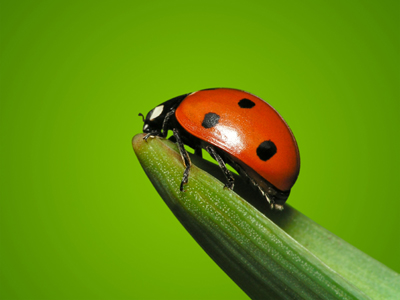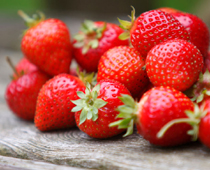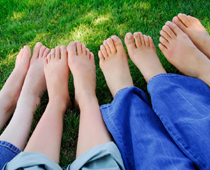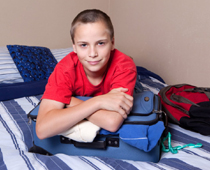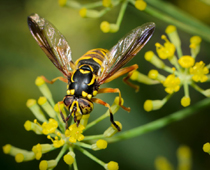Test I term
11
form Variant II
1.Find a
compound word..
A) straighten
B) Development C) Employment D) Greenhouse E) Socialist
- The
letter «u» is missed in a word.
A) to
rece…ve B) to appr…ach C) to s…spect D) to m…an E)
to …btain
3.Choose
the right variant of articles.
…
first true robot was developed in … Janan in … 1927.
A) a, the,
— B) the, the, the C) the, a, — D) -, -, the E) the,
-, -.
4.Read
the wishes and complete the reality: I wish I lived in London, but I don’t.
A) I live in a small town. B) I go to school every day. C)
I’m hungry.
D) It is Monday. E) I promise to get up early.
5.Write one thing you wish you
could do: I wish I … speak English.
A) need B) could C) must D) may E) am
6. Choose the right variant of numerals:
We
finish our school at fifteen minutes past one
A) 12.15
B) 1. 15 C) 1. 05 D) 1. 50 E) 1. 45
7.Choose
the write word:
The
… system was born about 4.600 million years ago as nebula.
A) Sun
B) Moon C) Sunny D) Solar E) Earth
8.Choose
the right definition to the idiom «to cry for the moon»
A) – very
happy.
B) – to
promise to give someone something that is beyond one’s
power to give.
C) — to
desire strongly something that can’t be gained.
D) – once in
a very long time.
E) – to
look at the moon.
9.Find
the Russian equivalent. «come back»
A) Вернуться B) повторить C) подумать D) спуститься E) подняться
10. Choose the suffix of an adverb.
A) – ly B) – able C) – ent D) – ness E) – ive
11. Choose
the write pronoun:
-Where is John? … is in the
kitchen
A)we B)they C) she
D) he E) I
12. Choose
the correct variant. “Today is … than it was yesterday”
A) the warmest B) the
warmer C) as warmer D) warm E) warmer
13. Find the verb founded
with the prefix.
A) connected
B) populate C) locate D) disapprove E) solve
14. Choose the right variant: “The capital of the Wales is”
A) Cardiff B) London C) Toronto D) Atlanta E)
Washington
15.
Choose the right variant. “I wish you ______ not so far again”
A)Was B) were C) will
be D) would be E) had be
16.
«Favorite topic of conversation in Britain»
A) tea party B) weather C)
discos D) T.V. E)
Internet
17. Phrasal verb “ искать”
A) to look for B) to look in C) to look out D)to look on
E) to look at
18. Choose the right preposition:
-I have my English class… Monday.
A) in B) for C) on D) at E) with
19. Antonym of the word “Business” is:
A) Leisure B) Education C) Lesson D) Meal E) Work
20. Choose the right
variant: “ It is autumn now” I wish
……
A) I didn’t B) it wasn’t. C) there was D) I
could E) she
21. Choose the correct word: Praises … there quickly.
A) go up B) get along C) to discuss together
D) think of E) take of
22. Chose the word written correctly:
B) Telefone B) telephone C) tellephone D)
telifone
Е) telephon
23. Transfer into Indirect speech.
« The trees in the park are yellow :»– he says.
A) He says the trees are in the park yellow.
B) He says the trees in the park were yellow.
C) He says the trees in the park are yellow.
D) He say is the trees in the park are yellow.
E) He says if the trees are yellow in the park.
24. Choose the right variant: “Could you tell me … has happened?”
A)who B) why C) where
D) which E) what
25. I can’t stand …
hard rock.
A) controlling B) listening to C) hurting D)
picking up E) wastin
Key
11 form variant II 1
term
- D)
6. B) 11. D) 16. B) 21.
A) - C)
7. D) 12. E) 17. A) 22. B) - E)
8. C) 13. D) 18. C) 23.
C) - A)
9. A) 14. A) 19. A) 24. E) - B)
10. A) 15. B) 20. B) 25. B)
9-th form
TEST
Variant I
1. Find the adjective:
A) Happiness B) health c) harmful D) help E) hesitate
2. Find a signal word for Past Simple:
A) Tomorrow B) ever C) now D) three days ago E) next week
3. Find a signal word for Present Perfect:
A) Usually B) Listen! C) yet D) always E) seldom
4. Choose the word with the fourth type of reading:
A) Burn B) Dress C) Tulip D) Fire E) Bar
5. Find a sentence in Present Progressive:
A) Last year we in France. B) Have you cleaned the floor? C) Are you from New Zealand?
D) I’m making a cheese cake right now. E) They are going to kook for a present.
6. Choose the right verb form:
A) we is playing B) we has playing C) we are playing D) we are plaing E)
we was playing
7. Choose the right verb form:
A) He sung B) He singed C) He sungs D) He sang E) He sangs
8. Choose the correct variant:
A: What … in your spare time? B: I often go swimming
A) do you do B) are you doing C) have you done D) are you do E) does you do
9. Find the verb form in Present Perfect Progressive:
A) Has V
3
B) Had V
3
C) am, is, are +V
ing
D) Have/has been V
ing
E) Have/Has been
V
3
10. Choose the correct variant: There are 584 students at the department:
А) Five and hundred eighty-four. В) Five hundred and eighty-four. С) Five eighty-four hundred.
D) Five hundred eighty fourth. E) Five hundred and eighty four.
11. Choose the word to the definition: It is a person who doesn’t wear fur and leather clothes, and
doesn’t eat diary products, meat and fish.
A) A meat-eater B) my Granny C) a child D) a vegetarian E) a sick person
12. Choose the correct variant: … you at school yesterday? – Yes, I …
А) Were/was В) Am/is С) Were/were D) Was/was Е)Was/were
13 Choose the correct variant: Listen! That boy … the saxophone.
A) plays B) played C) is playing D) will play E) is going to play
14. Choose the correct variant: Mark … swimming yesterday.
A) go B) has gone C) is going D) went E) will play
15. Choose the correct answer:
A: Have you ever been to England? B: …
A) No, I haven’t B) No, I did C) No, I have D) No, I don’t E) No, I hasn’t
16. Find the sentence in Present Perfect:
A) She’s not from Canada. B) Mark’s moved to California. C) Mom’s wearing an old shirt.
D) She doesn’t play the violin. E) Michele’s going to sleep.
17. Choose the correct preposition: I haven’t seen Lena … many years.
A) since B) at C) before D) after E) for
18. Choose the correct variant: There are 14 pupils in my group.
A) four B) forty C) fourteen D) fourth E) fourteenth
19. Choose the correct variant: There … very many children in the park yesterday.
A) were B) is C) did D) was E) are
20. Choose the correct pronoun: … husband is a travel agent.
A) She’s B) His C) Her D) Mine E) Hers
21. Find the noun:
A) Different B) dangerous C) discussion D) damage E) difficult
22. Find a sentence in Present Simple:
A) He was from China. B) We are playing chess. C) Mary doesn’t play chess
D) My friend invited me to the party. E) I have had a cup of tea.
23. Find the adjective with negative meaning:
A) Treatment B) responsible C) careful D) painless E) social
24. Find the suffix of a noun:
A) –ous B) –ness C) –full D) –y E) –fy
25. Find the suffix of an adjective:
A) –tion B) –ly C) –ous D) ness E) –ment
26. Find the English equivalent: “безвкусный”
A) Tasty B) tasteless C) taste D) tasteful E) untasty
27. Choose the correct preposition: John’s uncle has been doing the same job …10 years.
А) During В) For С) In D) Of Е) Since.
28. Finish the idiom: “to have a sweet …”
A) Tongue B) tooth C) eye D) lip E) hands
29. Finish the idiom: “on the tip of one’s …”
A) Tongue B) tooth C) eye D) lip E) hands
30. Finish the idiom: “button your …”
A) Tongue B) tooth C) eye D) lip E) hands
Keys
Variant I
1. C
2. D
3. C
4. D
5. D
6. C
7. D
8. A
9. D
10. C
11. D
12. A
13. B
14. D
15. A
16. B
17. E
18. C
19. A
20. B
21. C
22. C
23. D
24. B
25. C
26. C
27. B
28. B
29. A
30.
9-th form
TEST
Variant II
1. Choose the correct verb form:
A) I drinked B) I drank C) I drunk D) I drinks E) I dranks
2. Find a signal word for Future Simple.
A) Yesterday B) today C) now D) next Monday E) ever
3. Find a signal word for Present Perfect Progressive.
A) Since B) yet C) often D) already E) just
4. Choose the correct variant: There … much ice cream in the fridge.
A) were B) is C) are D) has E) have
5. Find the sentence in Present Perfect.
A) I have a brother B) She visited her uncle yesterday C) Last year I was in Salt Lake City
D) They have been reading for an hour E) I’ve forgotten my homework
6. Choose the word with the second type of reading:
A) Car B) Dress C) Tulip D) Fire E) Burn
7. Choose the correct verb form:
A) Susan have written B) Susan have wrote C) Susan has written D) Susan has writing E) Susan
has wrote
8. Find the sentence in Past Perfect.
A) She hadn’t translated the text B) Mark’s moved to New York. C) Dad’s wearing an old shirt.
D) Nobody came to the meeting E) Meg’s going to sleep.
9. Find the verb form in Future Progressive.
A) was V
ing
B) would V
ing
C) am, is, are +V
ing
D) will be V
ing
E) shall be V
ing
10. Find the correct verb form in Past Simple:
A) liveed B) tried C) broken D) planed E) tryed
11. Choose the correct preposition: Students will have finished the test … 3 pm next Friday.
А) by В) for С) in D) of Е) since.
12. Choose the correct variant: … you at school yesterday? – Yes, I …
А) Were/was В) Am/is С) Were/were D) Was/was Е)Was/were
13. Find the English equivalent: безболезненный
A) painful B) pain C) unpain D) painless E) painly
14. Choose the correct verb form: George … swimming yesterday.
A) go B) has gone C) is going D) went E) will play
15. Choose the correct variant:
A: Have you ever been to Germany? B: …
A) No, I haven’t B) No, I did C) No, I have D) No, I don’t E) No, I hasn’t
16. Find the adjective with negative meaning:
A) famous B) tasteless C) careful D) painful E) social
17. Choose the correct preposition: I haven’t seen Lisa … December.
A) since B) for C) before D) after E) at
18. Choose the correct variant: My Granny has 13 grandchildren.
A) three B) thirteen C) threeteen D) third E) thirteenth
19. Find the adverb:
A) usually B) healthy c) solution D) interpreter E) good
20. Choose the correct variant: They have over 15 550 books:
А) fifteen thousands five hundred and fifty В) fifteen thousand five hundred fifty С) fifty thousand
five hundred and fifty
D) fifteen thousand fifth hundred and fifty E) fifteen thousand five hundred and fifty
21. Find the verb:
A) decision B) decide C) reading D) worker E) thoughts
22. Find the sentence in Past Simple.
A) I live in Odessa B) Emily has just come from school C) Did you phone me last night?
D) There will be some rain in the East E) My friend was invited to the party
23. Choose the correct variant:
A: What … in your spare time? B: I often go swimming
A) do you do B) are you doing C) have you done D) are you do E) does you do
24 Find the suffix of a noun:
A) –al B) –ize C) –full D) –ment E) –ent
25. Find the suffix of an adjective:
A) –ish B) –tion C) –or D) ness E) –y
26. Choose the correct verb form: Listen! That boy … the guitar
A) plays B) played C) is playing D) will play E) is going to play
27. Choose the word to the definition: It is a person who wears fur and leather clothes, and eats diary
products, meat and fish.
A) a meat-eater B) my Granny C) a child D) a vegetarian E) a sick person
28. Finish the idiom: “apple of one’s …”
A) tongue B) tooth C) eye D) lip E) hands
29. Finish the idiom: “to have time on one’s …”
A) tongue B) tooth C) eye D) lip E) hands
30. Finish the idiom: “to have a sweet …”
A) tongue B) tooth C) eye D) lip E) hands
Keys
Variant II
1. B
2. D
3. A
4. B
5. E
6. A
7. C
8. A
9. D
10. E
11. A
12. A
13. D
14. D
15. A
16. B
17. A
18. B
19. A
20. B
21. B
22. C
23. A
24. D
25. E
26. D
27. A
28. C
29. E
30. B
TEST
10-th form
Variant I
Choose the correct answer.
1. In the sentence, «I like dancing,» what is the word «dancing»?
a. gerund b. participle c. adjective d. adverb e. infinitive
2. They haven’t had two children, ________ ?
a. did they b. had they c. have they d. do they e. don’t they
3. Finish the question tag? ‘Let’s go for a walk, ________?’
a. shall we b. don’t we c. let us d. won’t we e. will we
4. In the sentence «You’d better take an umbrella, it might rain» — ‘d better =
a. would better b. did better c. had better d. could better e. food better
5. According to the proverb, ‘There’s no smoke without _______’.
a. matches b. cigarettes c. burning the dinner d. fire e. fire place
6. Which form of ‘walk’ starts this sentence? «________ is good for you.»
a. To walk b. Walk c. Walking d. Walked e. To walking
7. How long ________ you lived here?
a. have b. has c. been d. is e. do
8. What is a synonym of “rude”?
a. inpolite b. dispolite c. unpolite d. impolite e. anti-polite
9. John ate the meal, ________ the vegetables.
a. except from b. apart for c. except for d. apart e. besides
10. Which of the following nouns is countable?
a. money b. milk c. people d. information e. juice
11. She’s the woman _______ came into the shop.
a. who b. whom c. whose d. which e. what
12. The Internet is an amazing ________.
a. invent b. inventor c. invention d. inventive e. to invent
13. In which sentence is the Present Perfect used correctly?
a. I has bought a new computer. b. I have buyed a new computer. c. I bought a new computer.
d. I have bought a new computer. e. I have to buy a new computer.
14. The underlined word is: “The letter written by her was full of mistakes”.
a. Gerund b. Participle II c. Participle I d. Infinitive e. Passive Infinitive
15. Choose the right variant: A cold wind ____ for the last three days
a. has been blowing b. blows c. is blowing d. blew e. have been blowing
16. By the year 2020 the population of the world ________ to 8 billion.
a. will increase b. increases c. will have increased d. is increasing e. would increase
17. If the weather ________ sunny, we’d go to the beach.
a. had been b. is c. were d. would be e. was
18. By the time I arrived at the station, the train _________.
a. had left b. has left c. left d. will leave e. would leave
19. London’s major airport is … .
a. Stansted b. Gatwick c. Thiefrow d. Wimbldon e. Heathrow
20. Which is the correct reported speech of — He asked, “Do you have a car?”
a. He asked do I have car? b. He asked do you have a car? c. He asked if I had a car.
d. He asked if you had a car. e. He asked if I have a car.
21. Finish the proverb, “Too many cooks … “.
a. make light work b. save nine c. spoil the broth d. catch the worm e. keep the doctor away
22. My brother has ________ my favorite dress.
a. lent b. loaned c. lend d. adopted e. borrowed
23. Which word is odd?
a. huge b. enormous c. terrific d. gigantic e. large
24. Find the synonym to the verb “run over”:
a. resemble b. hit by a car c. meet by chance d. search e. be friendly with
25. Finish the idiom: “Walking on the … “
a. air b. waters c. cloud d. weather e. rain
10-th form
TEST
Variant II
Choose the correct answer
1. Help ___ to sandwiches , please.
a) you b) me c) yourselves d) your e) yourselfes
2. This was the ______ test I’ve ever done
a) easiest b) easy c) easier d) most easiest e) more easiest
3. At this time next Monday we …. an essay.
a) will have b) having c) will be having d) had had e) will had had
4. I _____ the flowers all the morning.
a) have been watering b) watered c) have watered d) did watered e) has been watering
5. His car runs _____ a race car.
a) as fast as b) faster c) faster like d) that fast as e) faster as
6. I wonder who ________.
a) did help him to escape b) to escape him help c) him helped to escape d) helped him to escape e) escape
7. She asked him _________________.
a) how much did he expect to earn b) how much he expected to earn c) how many did he expect to earn
d) ) how many he expects to earn e) how much he expects to earn
8. Anna _____________ swim when she was three.
a) should b) may c) ought to d) could e) can
9. When I was at school we _______ do homework every day.
a) had to b) must to c) are able d) ought e) have to
10. I don’t know where _______ yesterday.
a) did he go b) he went c) went he d) he has gone e) he had gone
11. Find the synonym to the verb “run into”:
a) continue b) resemble c) return d) take care of e) meet by chance
12 .I__________a decision yet.
a) made b) am making c) haven’t made d) will make e) hadn’t made
13. The nickname of New York is .....
a. Yellow apple b. Red apple c. Green apple d. Small apple e. Big apple
14. I must go to the doctor. My toothache _______ worse.
a) had got b) was getting c) is getting d) gets e) get
15. Find the Russian equivalent to the word “rainbow:
a) капля b) радуга c) плащ d) ливень e) дождевая вода
16. This time last year she___________ for FCE exam.
a) was preparing b) prepared c) has prepared d) will prepare e) prepare
17. Finish the idiom: “… one’s brain”
a) wind b) ice c) air d) cloud e) wash
18. One thousand people _________ by the company.
a) employ b) are employing c) employed d) are employed e) employing
19. The next meeting _________ on April 1st.
a) will hold b) will be held c) helds d) is held e) held
20. If it________ sunny tomorrow, I’ll go out.
a) is b) will c) was d) is going e) will be
21. The capital of Wales is … :
a) Glasgow b) Edinburgh c) Cardiff d) Belfast e) Caernafon
22. We’ll be late if the bus ___________.
a) doesn’t arrive b) won’t arrive c) hasn’t arrive d) don’t arrive e) isn’t arrived
23. The underlined word is: “The girl crying at the window is Emily”:
a) Participle II b) Infinitive c) Participle I d) Gerund e) Complex Object
24. She made her son ________down to music.
a) to turn b) turn c) turning d) turned e) having turned
25. Complete the sentence: “The … is perfect for slalom”:
a) Charyn Canyon b) Charyn River c) Turgen Gorge d) Singing Hill e) Medvezhni waterfall
Keys 10 класс
Variant I
1.a
2.c
3.a
4.c
5.d
6.c
7.a
8.d
9.c
10.c
11.a
12.c
13.d
14.b
15.a
16.c
17.c
18.a
19.c
20.e
21.c
22.e
23.c
24.b
25.a
10 Класс Variant II
1.c
2.d
3.c
4.a
5.a
6.d
7.b
8.d
9.a
10.b
11.e
12.c
13.e
14.c
15.b
16.a
17.e
18.d
19.b
20.a
21.c
22.a
23.c
24.b
25.d
Test I term
11 form Variant I
1. Choose the right variant of articles.
… first true robot was developed in … Japan in … 1927.
A) a, the, — B) the, the, the C) the, a, — D) -, -, the E) the, -, -.
2. Find the verb founded with the prefix.
A) connected B) populate C) locate D) disapprove E) solve
3. Find a compound word..
A) Greenhouse B) Development C) Employment D) straighten E) Socialist
4. The letter «u» is missed in a word.
A) to rece…ve B) to appr…ach C) to s…spect D) to m…an E) to
…btain
5. Choose the right variant of numerals:
We finish our school at fifteen minutes past one
A) 12.15 B) 1. 15 C) 1. 05 D) 1. 50 E) 1. 45
6. Choose the write word:
The … system was born about 4.600 million years ago as nebula.
A) Sun B) Moon C) Sunny D) Solar E) Earth
7. Read the wishes and complete the reality:
I wish I lived in London, but I don’t.
A) I live in a small town. B) I go to school every day.
C) I’m hungry. D) It is Thursday. E) I promise to get up early.
8. Write one thing you wish you could do: I wish I … speak Turkish.
A) need B) could C) must D) may E) am
9. Choose the suffix of an adverb.
A) – ly B) – able C) – ent D) – ness E) – ive
10. Choose the right pronoun:
—Where is Mary? … is in the kitchen
A) we B)they C) she D) he E) I
11. Choose the right definition to the idiom «to cry for the moon»
A) – very happy.
B) – to promise to give someone something that is beyond one’s power to give.
C) — to desire strongly something that can’t be gained.
D) – once in a very long time.
E) – to look at the moon.
12. Find the Russian equivalent. «come back»
A) Вернуться B) повторить C) подумать D) спуститься E) подняться
13. Choose the right variant. “I wish you ______ not so far again”
A) Was B) would be C) will be D) were E) had be
14. «Favorite topic of conversation in Britain»
A) tea party B) weather C) discos D) T.V. E) Internet
15. Choose the correct variant. “Today is … than it was yesterday”
A) the warmest B) the warmer C) as warmer D) warm E) warmer
16. Choose the right variant: “The capital of Wales is”
A) Cardiff B) London C) Toronto D) Atlanta E) Washington
17. Antonym of the word “Business” is:
A) Leisure B) Education C) Lesson D) Meal E) Work
18. Choose the right variant: “ It is autumn now” I wish ……
A) I didn’t B) it wasn’t. C) there was D) I could E) she weren’t
19. Phrasal verb “ искать”
A) to look for B) to look in C) to look out D)to look on E) to look at
20. Choose the right preposition:
—I have my English class… Monday.
A) in B) for C) at D) on E) with
21. Transfer into Indirect speech.
« The trees in the park are yellow :»– he says.
A) She says the trees are in the park yellow.
B) She says the trees in the park were yellow.
C) She says the trees in the park are yellow.
D) She say is the trees in the park are yellow.
E) She says if the trees are yellow in the park.
22. Choose the right variant: “Could you tell me … has happened?”
A) who B) what C) why D) which E) where
23. Choose the correct word: Praises … there quickly.
A) go up B) get along C) to discuss together D) think of E) take of
24. Chose the word written correctly:
A) telephon B) telefone C) tellephone D) telifone Е) telephone
25. Choose the synonym to the word “Foxy”:
A) shy B) sly C) wide D) Cold E) Suitable
Key 11 form Variant 1 1 term
1. E) 6. D) 11. C) 16. A) 21. C)
2. D) 7. A) 12. A) 17. A) 22. B)
3. A) 8. B) 13. D) 18. B) 23. A)
4. C) 9. A) 14. B) 19. A) 24. E)
5. B) 10. D) 15. E) 20. D) 25. B)
Test I term
11 form Variant II
25. Find a compound word..
A) straighten B) Development C) Employment D) Greenhouse E) Socialist
26. The letter «u» is missed in a word.
A) to rece…ve B) to appr…ach C) to s…spect D) to m…an E) to …btain
27. Choose the right variant of articles.
… first true robot was developed in … Janan in … 1927.
A) a, the, — B) the, the, the C) the, a, — D) -, -, the E) the, -, -.
28. Read the wishes and complete the reality: I wish I lived in London, but I don’t.
A) I live in a small town. B) I go to school every day. C) I’m hungry.
D) It is Monday. E) I promise to get up early.
29. Write one thing you wish you could do: I wish I … speak English.
A) need B) could C) must D) may E) am
30. Choose the right variant of numerals:
We finish our school at fifteen minutes past one
A) 12.15 B) 1. 15 C) 1. 05 D) 1. 50 E) 1. 45
31. Choose the write word:
The … system was born about 4.600 million years ago as nebula.
A) Sun B) Moon C) Sunny D) Solar E) Earth
32. Choose the right definition to the idiom «to cry for the moon»
F) – very happy.
G) – to promise to give someone something that is beyond one’s power to give.
H) — to desire strongly something that can’t be gained.
I) – once in a very long time.
J) – to look at the moon.
33. Find the Russian equivalent. «come back»
A) Вернуться B) повторить C) подумать D) спуститься E) подняться
34. Choose the suffix of an adverb.
A) – ly B) – able C) – ent D) – ness E) – ive
35. Choose the write pronoun:
—Where is John? … is in the kitchen
A)we B)they C) she D) he E) I
36. Choose the correct variant. “Today is … than it was yesterday”
A) the warmest B) the warmer C) as warmer D) warm E) warmer
13. Find the verb founded with the prefix.
A) connected B) populate C) locate D) disapprove E) solve
14. Choose the right variant: “The capital of the Wales is”
A) Cardiff B) London C) Toronto D) Atlanta E) Washington
15. Choose the right variant. “I wish you ______ not so far again”
A)Was B) were C) will be D) would be E) had be
16. «Favorite topic of conversation in Britain»
A) tea party B) weather C) discos D) T.V. E) Internet
17. Phrasal verb “ искать”
A) to look for B) to look in C) to look out D)to look on E) to look at
18. Choose the right preposition:
—I have my English class… Monday.
A) in B) for C) on D) at E) with
19. Antonym of the word “Business” is:
A) Leisure B) Education C) Lesson D) Meal E) Work
20. Choose the right variant: “ It is autumn now” I wish ……
A) I didn’t B) it wasn’t. C) there was D) I could E) she
21. Choose the correct word: Praises … there quickly.
A) go up B) get along C) to discuss together D) think of E) take of
22. Chose the word written correctly:
B) Telefone B) telephone C) tellephone D) telifone Е) telephon
23. Transfer into Indirect speech.
« The trees in the park are yellow :»– he says.
A) He says the trees are in the park yellow.
B) He says the trees in the park were yellow.
C) He says the trees in the park are yellow.
D) He say is the trees in the park are yellow.
E) He says if the trees are yellow in the park.
24. Choose the right variant: “Could you tell me … has happened?”
A)who B) why C) where D) which E) what
25. I can’t stand … hard rock.
A) controlling B) listening to C) hurting D) picking up E) wastin
Key 11 form variant II 1 term
6. D) 6. B) 11. D) 16. B) 21. A)
7. C) 7. D) 12. E) 17. A) 22. B)
8. E) 8. C) 13. D) 18. C) 23. C)
9. A) 9. A) 14. A) 19. A) 24. E)
10. B) 10. A) 15. B) 20. B) 25. B)
- Home
- KS2
- KS2 English
- Compound Words
‘Ladybird’ is an example of a compound word.
This KS2 English quiz takes a look at compound words. Compound words are two words together to make a new word. The English language contains many compound words. ‘Ladybird’ is a good example — it’s not a lady, or a bird!
If you are unsure whether a word is a compound word or not, see how many words within the main word there are. If there are two words (that can be complete words in their own right), then you’ve got a compound word.
Compound words are made from two whole words, so be careful not to be tricked by prefixes when you try this English quiz.
To see a larger image, click on the picture.
1.
Find the compound word in the following sentence.
My mum enjoys reading the newspaper every evening.
enjoys
reading
newspaper
evening
2.
Find the compound words in the following sentence.
I always thought it was a mistake to try to grow strawberries inside the fridge.
mistake, strawberries
mistake, fridge
strawberries, inside
inside, fridge
3.
Find the compound words in the following sentence.
She gave a gentle stir with the teaspoon and then replaced the lid on the teapot.
gentle, teaspoon
teaspoon, replaced
teaspoon, teapot
replaced, teapot
4.
Find the compound word in the following sentence.
My auntie looked in her handbag for a tissue.
auntie
looked
handbag
tissue
5.
Find the compound word in the following sentence.
They were unable to build a snowman because there wasn’t enough snow.
unable
build
snowman
enough
6.
Find the compound words in the following sentence.
In the afternoon, the grass was so warm and dry that the children decided to go barefoot.
afternoon, grass
afternoon, barefoot
children, decided
decided, barefoot
7.
Find the compound words in the following sentence.
Billy couldn’t find room in the suitcase for his football.
couldn’t, room
couldn’t, suitcase
room, football
suitcase, football
8.
Find the compound word in the following sentence.
On our science trip, we saw butterflies, wasps, ants and mosquitoes.
science
butterflies
wasps
mosquitoes
9.
Find the compound words in the following sentence.
The headteacher raised her eyebrow when we tried to explain our practical joke.
headteacher, eyebrow
raised, eyebrow
tried, practical
explain, joke
10.
Find the compound word in the following sentence.
The waves crashed against the base of the ancient lighthouse.
waves
crashed
ancient
lighthouse
Great! You’re enjoying learning by quizzing
You’ve had your free 15 questions for today. For unlimited access to all quizzes, games and more, you’ll need to subscribe.
If you wish to subscribe straight away, visit our Join Us page.
Or take a look around the website and start at our Home page. Colin
A compound word is made up of two or more smaller, individual words. Each word can stand independently from the other with its own meaning and spelling. When the two are put together, however, a new word is formed with a new meaning relating to the original words. Butter and fly each have their own separate meaning. However, when they’re put together in the compound word butterfly, an entirely new meaning is created. Green and house can be used to describe a colorful house. When they’re put together to create greenhouse, the entire meaning is changed to now signify a building made with clear walls in order to trap heat and grow plants.
Compound words are classified under one of three types: open compounds, closed compounds, and hyphenated compounds. It can be challenging for students to discern when to use each type of compound word, as there is no hard and fast rule. Through repeated exposure in various texts, students will be able to decide how each compound word is classified and spelled. Having students practice using compound words in their writing is another tactic in increasing their exposure and ultimate knowledge of compound words.
Compound words can be different parts of speech based on how they are used. For example, housesit is a verb but textbook is a noun. Some compound words can fall under more than one part of speech, depending on their use in a sentence.
Some words look like compound words but they are not. The words pan + cake creates the word pancake: a type of cake made in a pan. However, office is not a compound word made of the words off + ice. These words do not create a new meaning related to their original meaning. Other words that look like compound words but are not include forage, season, and mandate. If a word includes a complete word along with a separate word part or affix, it’s also not a compound word.
Why should students learn compound words?
Understanding compound words is an incredible tool in helping students read and spell words that are initially unfamiliar. Knowing that compound words are comprised of two or more shorter words can make them less daunting when students encounter them in a text, and students will be better equipped to understand the meaning of compound words that they come across.
Do compound words always have to be made of two complete words?
Compound words will ALWAYS be made of two complete words. Sometimes words may sound like they are a compound word, but one of the words is not complete on its own. Words that have a prefix or suffix can sometimes be mistaken for a compound word, such as in preschool. School is a complete word, but the prefix pre is not, so this is not a compound word.
How are compound words and contractions different?
Compound words are ALWAYS made of two or more COMPLETE words, these words will never be shortened or changed. Contractions are also made of two or more words, but one or both of these words is shortened, and an apostrophe is used to take the place of the missing letters. Examples of contractions include don’t, I’ll, and they’re.
Can the words within a compound word be different parts of speech?
The two words that make up a compound word do not have to be from the same part of speech. Check out the examples below:
up + stairs = preposition + noun
butter + fly = noun + verb
barn + yard = noun + noun
play + room = verb + noun
red + head = adjective + noun
62.
Find a word with an inflection:
a) worker;
b) darkness;
c) books;
d)
rewrite.
63.
Find a word with a derivational affix:
a) night;
b) heartless;
c) Ivanov’s;
d)
papers.
64.
Find a word with two free morphemes:
a) unbearable;
b) childhood;
c)
merry-go-round;
d)
first-nighter.
65.
Find a word with a bound root-morpheme:
a) suspicion;
b) backward;
c) brotherly;
d)
houses.
66.
Find a word with two bound affixational morphemes:
a) kindness;
b)
snow-white;
c) uneatable;
d)
book-keeper.
67.
Find a monomorphic word:
a) mighty;
b) reader;
c) daughter;
d)
ashtray.
68.
Find
a polymorphic (derived) word:
a) unquestionable;
b)
lamp-shade;
c) snowball;
d)
forget-me-not.
69.
Find a polymorphic (compound) word:
a) uncomfortable;
b) impossible;
c) action;
d)
lady-killer.
70.
Which of the words is divided into Immediate Constituents?
a)
in-significant;
b)
in-attent-ive;
c)
un-expect-ed;
d)
joy-ful-ly.
71.
Which of the words is divided into Ultimate Constituents?
a)
un—moving;
b)
un—doubt—ed—ly;
c)
un—employment;
d)
ir—resistible.
72.
Find a word with a pseudo—morpheme:
a)
re-write;
b)
re-main;
c)
speak-er;
d)
lady-kill-er.
73.
Find a word with a semi-affix:
a)
red-hot;
b)
long-haired;
c)
self-possessed;
d)
undisputable.
74.
In which of the suffixated words a root-morpheme
has transformed into an affixational morpheme?
a) actress;
b) friendship;
c) question;
d)
childish.
75.
Which of the words has a derived stem?
a) darkness;
b) teacher;
c) unbound;
d)
uncomfortable.
76.
Find a word with a compound stem:
a) greenhouse;
b) unemployment;
c) insignificant;
d)
handful.
77.
Which of the words is built in accordance with the formula: a+suff?
a) irresistible;
b) invariably;
c) impossible;
d)
good-for-nothing.
78.
Which of the words is built in accordance with the pattern: in—+V+
—able +
—/y?
a) impossible;
b) irresistible;
c) invariably;
d)
good-for-nothing.
Word—formation
79.
Find a word formed with the help of a productive prefix:
a) amphitheatre;
b) withdraw;
c) unknown;
d)
forecast.
80.
Find a word formed with the help of a non-productive
prefix:
a) enlarge;
b) international;
c) dislike;
d)
rewrite.
81.
Find a word with a productive Germanic prefix:
a) foresee;
b) misprint;
c) abnormal;
d)
cooperation.
82.
Find a word with a productive Romanic prefix:
a) afternoon;
b) unable;
c) prearrange;
d)
undertake.
83.
Find a word with a Greek prefix:
a) postwar;
b) antifascist;
c) extraordinary;
d)
overturn.
84.
Which of the words is built with a prefix denoting negation?
a) unbutton;
b)
counter-attack;
c) illegal;
d)
demobilize.
85.
Which of the words has a prefix denoting repetition?
a) enrich;
b) befriend;
c) return;
d)
reappear.
86.
Which of the prefixes denotes time relations?
a)
pre-;
b)
un-;
c)
in-;
d)
dis-.
87.
Find a noun built with the help of a lexicalized grammatical suffix:
a) darkness;
b) translation;
c) teaching;
d)
actress.
88.
Which of the suffixes is used for the formation of nouns?
a)
-ness;
b)
-ish;
c)
-less;
d)
–ize.
89.
Which of the suffixes is a verb-suffix?
a)
-an;
b)
-en;
c)
-ing;
d)
-tion.
90.
Which of the suffixes is an adjective-suffix?
a)
-er;
b)
-ous;
c)
-ness;
d)
–fy.
91.
Find a noun built with the help of a suffix denoting a female being:
a) teacher;
b) cyclist;
c) Japanese;
d) farmerette
92.
Find a noun built with the help of a suffix denoting
diminutive-ness:
a) cutter;
b) booklet;
c) decorator;
d)
hostess.
93.
Find a noun built with the help of a suffix denoting collectivity:
a) peasantry;
b) greatness;
c) socialism;
d)
teaching.
94.
Find a noun built with the help of a suffix denoting the agent of a
verbal action:
a) pianist;
b) auntie;
c) instructor;
d)
villager.
95.
Find a noun built with the help of a suffix denoting the process of
an action:
a) singer;
b) development;
c) darkness;
d)
freedom.
96.
Find a noun built with the help of a suffix denoting state:
a) realism;
b) trustee;
c) happiness;
d)
translation.
97.
Which of the nouns is built with the help of a productive suffix?
a) victory;
b) violinist;
c) passage;
d)
freedom.
98.
Which of the nouns is built with the help of a non—productive
suffix?
a) assistance;
b) tenderness;
c) darvinism;
d)
resolution.
99.
Which of the adjectives is built with the help of a suffix denoting
the absence of the quality?
a) childish;
b) eatable;
c) hopeless;
d)
talkative.
100.
Find an adjective built with the help of a suffix denoting the
presence of the quality in a small degree:
a) powerful;
b) worthless;
c) bookish;
d)
reddish.
101.
Find
an adjective built with the help of a productive suffix:
a) mighty;
b) fashionable;
c) European;
d)
joyous.
102.
Find an adjective built with the help of a non-productive
suffix:
a) poetical;
b) sunny;
c) collective;
d)
careless.
103.
Which of the verbs is built with the help of a productive suffix?
a) organize;
b) illustrate;
c) unite;
d)
specify.
104.
Which of the nouns is built with the help of a Germanic suffix?
a) guidance;
b) lioness;
c) frequency;
d)
cleverness.
105.
Which of the nouns is built with the help of a Romanic suffix?
a) friendship;
b) achievement;
c) length;
d)
opportunist.
106.
Which ofthe nouns is built with the help of a Greek suffix?
a) government;
b) condition;
c) student;
d)
classicism.
107.
Find a
hybrid word (a word made up of elements derived from two or more
different languages)
among the adjectives:
a) eatable;
b) changeable;
c) stony;
d)
gracious.
108.
Find a hybrid word among the nouns:
a) singer;
b) government;
c) painter;
d)
organization.
109.
Find a suffixated noun formed from a noun stem:
a) cutter;
b) dependence;
c) kindness;
d)
duckling.
110.
Find a suffixated noun formed from a verbal stem:
a) sonny;
b) removal;
c) oaklet;
d)
brightness.
111.
Find a suffixated noun formed from an adjective stem:
a) blackness;
b) indication;
c) motherhood;
d)
inventor.
112.
Find a suffixated adjective formed from a verb stem:
a) foolish;
b) collective;
c) peaceful;
d)
horned.
113.
Find a suffixated adjective formed from a noun stem:
a) beautiful;
b) terrible;
c) brownish;
d)
thankful.
114.
Find a suffixated adjective formed from an adjective stem:
a) dirty;
b) bearded;
c) movable;
d)
greenish.
115.
Find the case of noun — verb conversion:
a)
a cut — to cut;
b)
a break — to break;
c)
a jump — to jump;
d)
a pen—to pen.
116.
Find the case of verb — noun conversion:
a)
to book — book;
b)
to even — even;
c)
to step — step;
d)
to dust — dust.
117.
Find the case of adjective — verb conversion:
a)
silver — to silver;
b)
round — to round;
c)
spoon — to spoon;
d)
camp — to camp.
118.
Find a denominal verb denoting an action produced with the object
(instrumental relations):
a)
a crowd — to crowd;
b)
a pump — to pump;
c)
a dog — to dog;
d)
a pocket — to pocket.
119.
Find a denominal verb denoting some action characteristic of the
subject:
a)
hammer — to hammer;
b)
doctor — to doctor;
c)
bag—to bag;
d)
dress — to dress.
120.
Find a denominal verb denoting deprivation of the object:
a)
ape — to ape;
b)
scalp — to scalp;
c)
finger — to finger;
d)
head — to head.
121.
Find a denominal verb denoting placing into the object (relations of
place):
a)
head — to head;
b)
bottle — to bottle;
c)
elbow — to elbow;
d)
saw — to saw.
122.
Find a denominal verb denoting addition of the object:
a)
monkey — to monkey;
b)
line — to line;
c)
back — to back;
d)
fish —to fish.
123.
Find a deverbai substance denoting the agent of the action:
a)
to cut—cut;
b)
to tramp — tramp;
c)
to cry—cry;
d)
to rush — rush.
124.
Find a deverbai substance denoting the result of the action:
a)
to smile — smile;
b)
to help — help;
c)
to find — find;
d)
to walk — walk.
125.
Find a deverbai substance denoting an instance of the action:
a)
to leak — leak;
b)
to peel — peel;
c)
to dress — dress;
d)
to glance — glance.
126.
Find the case where diachronically the words are formed not with the
help of conversion:
a)
walk — to walk;
b)
love — to love;
c)
book — to book;
d)
star — to star.
127.
Find a compound noun:
a)
theatre—goer;
b)
rain—driven;
c)
Afro—Asian;
d)
black—hearted.
128.
Find a compound adjective:
a)
sick-leave;
b) backbite;
c) armchair;
d)
sky-blue.
129.
Find a compound word in which the components are merely placed ne
after another (juxtaposition):
a)
Anglo-Saxon;
b) horseman;
c) sportsman;
d)
handiwork.
130.
Find a compound word whose components are joined together with a
linking vowel:
a) photointelligence;
b) gaslight;
c) gasometer;
d)
fountain-pen.
131.
Find a compound word whose components are joined together with a
linking consonant:
a) handicraft;
b)
blue-eyed;
c) sunflower;
d)
statesman.
132.
Find an example of a compound word proper:
a)
a break-down;
b)
a pen-holder;
с)
black-haired;
d)
a set-back.
133.
Find an example of a derivational compound
word:
a)
lady-killer;
b)
looking-glass;
c)
short-sighted;
d)
masterpiece.
134.
Find
an example
of a derivational compound adjective formed with the help of a
suffix:
a)
red-hot;
b)
ice-cold;
c)
military-looking;
d)
absent-minded.
135.
Find an example of a derivational compound noun formed with the help
of conversion:
a)
a shoe-maker;
b)
a pick-pocket;
c)
a stand-still;
d)
adragon-fiy.
136.
Find a coordinative (compounds
whose components are structurally and semantically independent and
constitute two structural and semantic centers)
a) secretary-stenographer;
b)
night-school;
c) sunburnt;
d)
colour-blind.
137.
Find a coordinative compound
formed
by joining phonically variated rhythmic forms:
a)
long-living;
b)
man-servant;
c)
willy-nilly;
d)
blueprint.
138.
Find a coordinative (reduplicative) compound:
a)
pooh-pooh;
b) sundew;
c)
lady-bird;
d)
railway.
139.
Find
an example of a
subordinative compound (a compound whose components are not equal in
importance):
a)
fifty-fifty;
b)
actor-manager;
c)
walkie-talkie;
d)
snowball.
140.
Find a
syntactic compound word (compounds whose components are placed in
the order that conforms to the rules of Modern English syntax):
a)
thick-headed;
b) nobleman;
c)
green-eyed;
d)
writing-table.
141.
Find an
asyntactic compound word (compounds whose components are placed in
the order that contradicts to the rules of Modern English syntax)::
a)
dark-blue;
b) heartache;
c)
sweet-heart;
d)
bluebell.
142.
Find a compound with a unity stress:
a)
sun-flower;
b)
door-nail;
c)
ill-nature;
d)
snow-white.
143.
Find a compound with a double stress (primary and
a)
dog-kennel;
b) heartache;
c) bluebell;
d)
workhouse.
144.
Find a compound with two level stresses:
a)
torch-light;
b) newspaper;
c)
fellow-man;
d)
bookcase.
145.
Find a completely motivated compound:
a)
bottle-opener;
b) handcuff;
c) greenhouse;
d)
dog-rose.
146.
Find a partially motivated compound:
a)
sky-blue;
b)
dog-eared;
c)
flower-bed;
d)
table-cloth.
147.
Find a non-motivated
(idiomatic) compound:
a) sunrise;
b)
narrow-minded;
c)
engine-driver;
d)
bluestocking.
148.
Find a compound in which the components reflect the semantic
relations of purpose:
a)
neck-tie;
b)
wrist-watch;
c) bookshelf;
d)
snowball.
149.
Find a compound in which the components reflect the adverbial
semantic relations:
a) steamboat;
b)
night-club
c)
dining-room;
d)
man-servant.
150.
Find a derivational adjective-nominal
compound:
a)
cooking-stove;
b)
red-nosed;
c) doorway;
d)
brick-layer.
151.
Find a nominal-verbal
compound:
a)
peace-fighter;
b)
cross-question;
c)
long-tailed;
d)
writing-table.
152.
Find a verb-adverb
compound:
a) a bookcase;
b)
a fox-hunter;
c)
a draw-back;
d)
a madman.
153.
Find a nominal compound:
a)
colour-blind;
b) broadcast;
c)
dog-faced;
d)
bottle-neck.
154.
Find an example of graphical abbreviation:
a) Mr Brown’s office;
b)
V-Day
celebration;
c) MP’s speech;
d)
UNESCO.
155.
Find
a lexical abbreviation:
a) tram;
b) YCL;
c) fancy;
d)
eg.
156.
Find a lexical abbreviation which is read as a succession of the
alphabetical readings of the constituent letters:
a) BBC;
b) Mrs;
c) radar;
d)
WAAF.
157.
Find a lexical abbreviation which is read as an ordinary word:
a)
H-bomb;
b) NATO;
c) USSR;
d)
TUC.
158.
Find an example of apocope
(the ommision of the final part of the word):
a) curtsy;
b) exam;
c) flu;
d)
bus.
159.
Find an example of aphaeresis
(the omission of the initial part of the word)
a) tec;
b) taxi;
c) plane;
d)
SOS.
160.
Find an example of syncope
(the ommision of the middle part of the word):
a) specs;
b) prof;
c) story;
d)
cycle.
161.
Find the word that has been clipped both at the beginning and at the
end:
a) phone;
b) photo;
c) fridge;
d)
smog.
162.
Find an example of a blend:
a) fence;
b) zoo;
c)
U-boat;
d)
motel.
163.
Find an example of back-formation:
a)
to read — reader;
b)
to edit — editor;
c)
to instruct — instructor;
d)
to shake — shaker.
Word—groups
and Phraseological Units
164.
Find an example of a free word-group:
a) to read books;
b) to cry for the moon;
c) to fall in love;
d)
to fly into a rage.
165.
Find an example of a phraseological fusion:
a) to show one’s teeth;
b) sunny smile;
c) cold winter;
d) heavy father
166.
Find an example of a phraseological collocation:
a) to go to the cinema;
b) to declare war;
c) to get the sack;
d) to beat about the bush
167.
Find an example of a phraseological unity:
a) to know where the shoe
pinches;
b) to join the army;
c) to speak well;
d) to know everything
168.
Find an adverbial phraseological unit:
a) ill at ease;
b) red tape;
c) by heart;
d) to keep house
169.
Find a verb phraseological unit:
a) for the sake of;
b) Jack of all trades;
c) golden opportunity;
d) to cut short
170.
Find a phraseme:
a) red tape;
b) small hours;
c) heavy father;
d) to get the sack
171.
Find an idiom:
a) a mare’s nest;
b) heavy rain;
c) cold reason;
d) to fall ill
Соседние файлы в предмете [НЕСОРТИРОВАННОЕ]
- #
- #
- #
- #
- #
- #
- #
- #
- #
- #
- #

